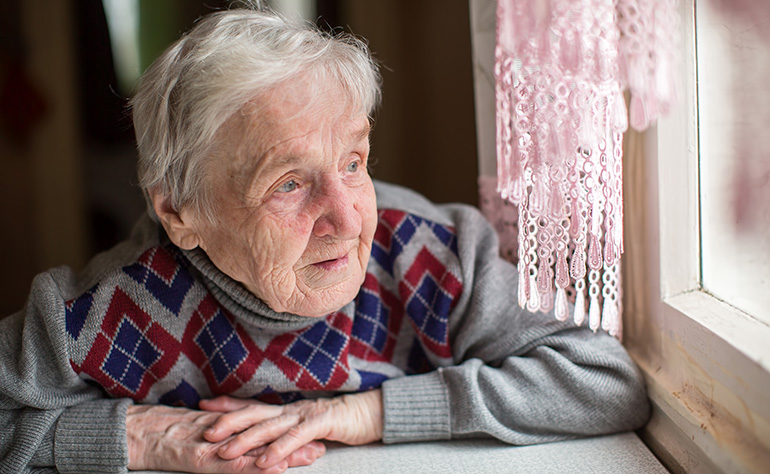Dementia Solutions: Personal Care & Respecting Privacy
| Dementia

How can I help my mom with personal care while respecting her privacy?
“My mom has dementia and I’ve been trying to help her with her personal care routines so that she maintains proper hygiene. However, it can be difficult at times to ensure good hygiene while also respecting her privacy and modesty. How can I find the right balance?”
Talking about using the toilet, deodorant, or shower can be uncomfortable for any of us. After all, personal care practices are considered ‘personal’ for a reason—they’re meant to be conducted in private. Many family caregivers notice changes in their loved ones’ hygiene and want to do something about it, but are uncomfortable with the tasks or even with discussing the topic. This is common and completely understandable. Strategies are available to ease the discomfort and embarrassment for both yourself and your mom.
When reminding your mom to use the bathroom regularly, try to use an indirect, non-confrontational approach. You could say, “I’m going to use the toilet now Mom, how about you go next and then I can make us something to eat.”
Choosing comfortable clothing for her, that allows easy use in the washroom without struggling with buttons or zippers, can also make a difference. If she requires support with toileting, first ensure she can feel trust with you. Then be sure the door is closed, or at least partially closed, to ensure some privacy. Provide cuing for each step using a gentle and caring tone. Try showing her, through your actions and words that you’re not trying to be intrusive but you are hoping that together you can help each other out. This can make her feel on more of an equal footing with you. Avoid using a tone that sounds like you’re ordering or dictating to her.
When it comes to reminders about bathing or showering, it is always helpful to establish a routine. A visual schedule, such as a marked calendar, can be particularly helpful. If your mom is able to bathe on her own, then a simple incentive and reminder may be all that’s needed. In the case of a more progressive form of dementia, where the individual can no longer remember how to shower or may even make mistakes, such as confusing shampoo with body wash, extra supports are required. You could help by getting items ready in advance, remove unnecessary items from the bathing area, or even help with turning on the tap.
When helping someone shower/bathe, a bath cape or towel can be used as a cover, while each body part is uncovered and cleansed one at a time. Having a warm terry cloth shower cape or large towel ready as soon as showering is finished in order to cover the person while being dried, one body part at a time, is also a good idea.
If you need extra help, we are here for you. Our caregivers are trained and certified to care for individuals with dementia. If you need further details, please:
Call us: 1-877-289-3997 Email us: clientservice@bayshore.ca
With these new ideas in hand, we hope both you and your aging parents can share the activities they love to do.
DISCLAIMER: The contents of this column are provided for information purposes only. They are not intended to replace clinical diagnosis or medical advice from a health professional. For any health related issue, always seek medical advice first from a trained medical professional
